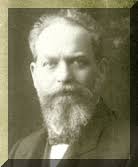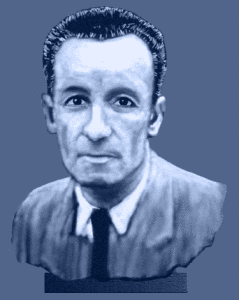Phenomenology is the study of how things appear. The Phenomenologists tried to get behind the surface of how things appear to reveal the nature of consciousness itself.
Husserl was the founder of phenomenology. He wanted to do away with theories about reality and restore certainty to philosophy. His method was to describe exactly how reality presented itself to consciousness. He wanted to make philosophy into a precise science. He believed that until this happened the traditional sciences had no firm foundation and could never be certain of what they were doing. Husserl’s philosophy begins at what he called the “natural standpoint”, the everyday world as experienced by each person.His method is to perform a “phenomenological reduction” of that experience.
This involves ignoring all previously held personal, philosophical, and even scientific assumption about a thing and then examining what remains. The aim is to disclose exactly how the mind works. Husserl believed that it is possible to step back and perform a phenomenological reduction on consciousness itself. He called this “pure” consciousness that could observe “everyday” consciousness at work the “transcendental ego”. This would be the starting point of all the knowledge.
This involves ignoring all previously held personal, philosophical, and even scientific assumption about a thing and then examining what remains. The aim is to disclose exactly how the mind works. Husserl believed that it is possible to step back and perform a phenomenological reduction on consciousness itself. He called this “pure” consciousness that could observe “everyday” consciousness at work the “transcendental ego”. This would be the starting point of all the knowledge.
Only a small percent of what Husserl wrote has been published. Most of his work still lies unpublished in an archive in Belgium.
Heidegger was HUsserl’s most famous pupil and he worked as Husserl assistant. Heidegger’s main interest was existence (or “being”) itself, based on the fundamental philosophical question “Why is there something rather than nothing?” In his most famous book, “Being and Time”, Heidegger uses Husserl’s method of phenomenological reduction to describe human existence. However, Heidegger’s version of phenomenology does not separate outside world from individual human consciousness. He argued that we cannot separate ourselves from the world. We are first of all “beings-in-the-world”. Heidegger invented a lot of new hyphenated words because he felt that language was too limited to describe human experience. Heidegger identified “care” as the characteristic that separate humanity from the rest of existence. By that he meant the active concern people demonstrate about everything they perceive, such as family, pete, politics, events of the past, and what will happen in the future.
Merleau-Ponty borrowed a lot of Husserl’s ideas. His basic disagreement with Husserl’s phenomenology was that it is based on mental rather than bodily experience. In his first major book, “The Phenomenology of Perception”, Merleau-Ponty argued that how we use our bodies determines how we experience the world. Like Kant he believed that all our ideas come from sense-impression that are shaped by certain rules of understanding. But he disagreed that these rules are purely mental. He believed that our understanding is shaped by rules of the body. In this early book, he demonstrated how people whose bodies have been damaged or impaired experience the world differently.



